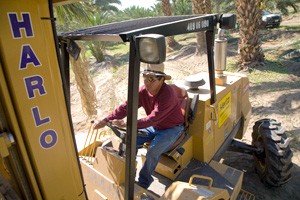International Labor Rights

Leer en español/Read in Spanish
Farmworker Justice applies international labor standards, participates in international law forums, and collaborates with international labor advocacy organizations to empower America’s farmworkers to improve their living and working conditions.
Farmworkers in the U.S.: A transnational issue
Agricultural workers in the United States have been a transnational labor force for centuries. Presently, America’s farmworkers are predominantly an international labor force. Most migrant and seasonal farmworkers are immigrants, the majority from Mexico including a growing majority of indigenous people who do not speak Spanish, but also Guatemala, Honduras, Jamaica, and Peru. American agriculture is more and more a global business. The U.S. Government uses taxpayer monies to help America’s farmers sell their products abroad. Growers’ demands for foreign markets have significantly affected negotiations over the North American Free Trade Agreement, the World Trade Organization and other trade regimes

Photo by David Bacon
Labor Issues in International Trade Laws
Increasingly, international trade negotiations confront labor issues. The North American Agreement on Labor Cooperation (NAALC), also known as the “NAFTA labor side agreement” is an example of an international labor rights regime. With globalization and the migration across borders of tens of millions of people around the world, countries are increasingly looking to international labor standards, including those of the International Labor Organization (a unit of the United Nations).
Confronting Human Trafficking
Moreover, the substantial increase in policymakers’ interest in “human trafficking” relates directly to the immigrant farmworker experience. Between one-third and one-half of farmworkers in the U.S. are hired by growers through “farm labor contractors” or other labor intermediaries. Human trafficking violations against farmworkers most often occur when workers are either coerced into working for a labor contractor, experience wage deductions that create a situation of indentured servitude,or workers are physically prevented from leaving the premises of the farm and/or their travel documentation is taken away from them. Federal labor trafficking laws prohibit the procurement and exploitation of a person for labor through the use of force, fraud, or coercion
Many growers deny that they “employ” any of the workers in their fields and disclaim liability for violations of labor rights, immigration laws and criminal laws against slavery and peonage. Farmworker Justice has been a leader in domestic efforts to reduce abuses under labor contracting by forcing growers to accept responsibility as “joint employers” of the workers along with the contractors. We also have been engaged in such work at the international level.

